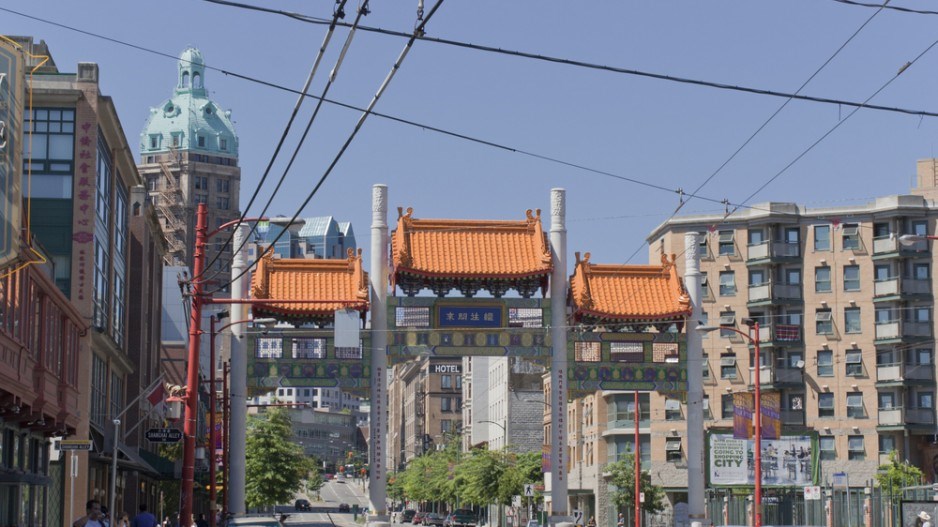Could China’s market volatility amid signs of an economic slowdown benefit the B.C. economy?
While a lower Canadian dollar might boost short-term projects like film shoots, experts say China’s shifting economic tide could attract more business to Vancouver in the long term.
Trading was halted twice in one week on the Shanghai Stock Exchange amid major stock selloffs in early January, further eroding confidence in commodities in an already rocky year. The price of a barrel of crude oil has fallen from US$60 in early 2015 to US$30 this month.
While Beijing took measures in January to reduce the value of its currency to increase exports, the Canadian dollar has depreciated far more over the past year as energy prices have fallen dramatically.
In December 2014, the loonie was worth US$0.86, but by mid-January 2016 it was trading as low as US$0.69.
Paul Beaudry, a professor at the University of British Columbia’s Vancouver School of Economics, said the Canadian dollar’s decline could catch the eye of some Chinese businesses looking to expand into North America.
“One of the big drivers here is the change of patterns in China. China has decided to move away from this very high-investment economy and is trying to move into a more consumer-driven economy, which means it’s going to need less commodities.”
While the drop in demand for commodities has hurt the Canadian economy, Beaudry said Canada has now become a cheaper place for Chinese firms to do business.
Yuen Pau Woo, CEO of HQ Vancouver, agreed that China’s recent volatility is a sign companies there are maturing from a high-growth to a service-oriented phase.
Victoria, Ottawa and the Business Council of British Columbia launched HQ Vancouver a year ago as a joint program aimed at luring Asian head offices to the West Coast.
Despite the recent market volatility in China, Yuen said the country will continue to be HQ Vancouver’s biggest source of potential head office investment.
“The hot money or capital flight from China in the weeks or months ahead because of uncertainty in the Chinese financial market, that’s not the kind of capital inflow that we are targeting,” he said.
The goal of the three-year program was to make two head office announcements by late 2017, with another three head office announcements either made or in progress by 2020.
In the program’s first year, three companies agreed to establish offices in Vancouver.
“The project cycle for attracting head offices is a much more than three years, typically,” Yuen said. “We’ve been very fortunate to identify opportunities that were already in motion and which we were able to bring to fruition.”
He added that HQ Vancouver has now identified between 20 and 25 “tier one” accounts that will be pursued over the program’s remaining two years.
“We have no real power to determine if a company will in fact push the button and make the decision to set up a head office,” Yuen said.
But he believes as Chinese companies mature in their own domestic market – something Yuen said is being signalled by the current market volatility – it’s likely many will soon expand to North America.
If that’s the case, he said B.C. is more attractive West Coast landing place than Washington state, Oregon or California.
“It comes down to three key factors: talent, location and competitiveness.”
Yuen added that lower corporate taxes, a cheaper workforce and proximity to Asia all work in Vancouver’s favour.




